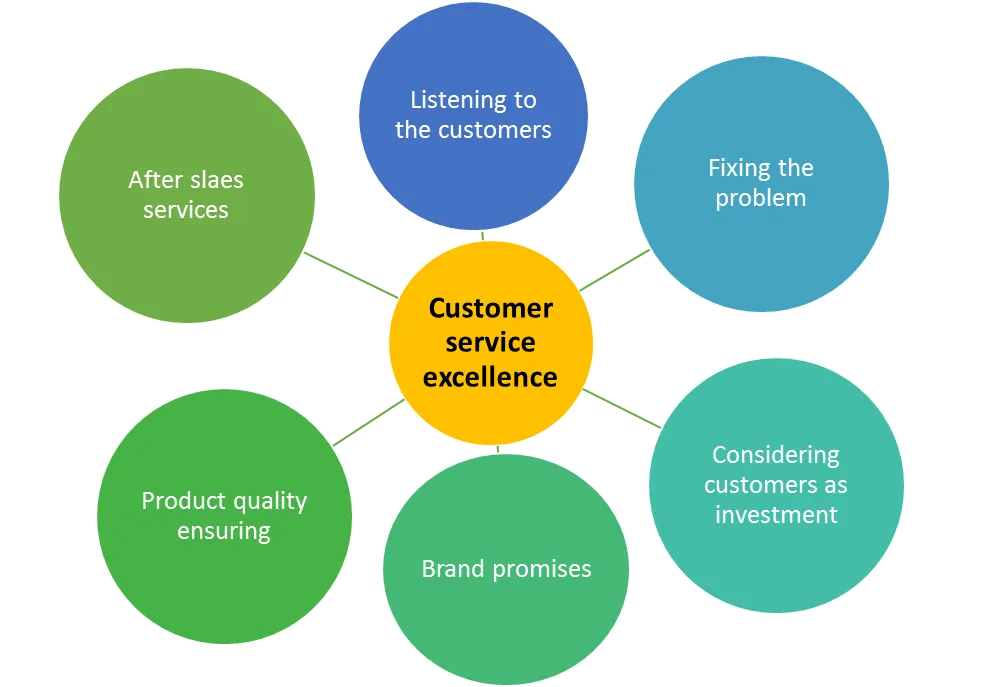
People who venture into e-commerce business share a common goal which is profit marginalization. Choosing to sell hot products that generate thousands of profits guarantees the success of your business.
The Federal Ministry of Industry, Trade and Investment (FMITI) ascertains that the e-commerce industry is recording optimum expansion, and the FMITI projects a compound annual growth rate (CAGR) of up to 15% within (2025-2030).
The e-commerce market allows business owners to reach a large audience and capitalize on the digital space. This publication will explain the steps involved with building a profitable e-commerce business in Nigeria.
How Does Ecommerce work?
E-commerce is essentally selling online using digital methods In ecommerce, digital marketing channels such as the internet is used to project products available for sale usually via a digital channel such as a an ecommerce website or mobile app, then users can interface with the platform to purchase products.
Ecommerce has become a growing marketing trend in Nigeria ever since COVID-19.
Currently, most consumers rely on purchasing products that meet their needs online. Trending e-commerce websites such as Jumia, Konga, and Facebook have recorded billions of transactions between 2015-2025.
Setting up an e-commerce website may not be easy, but the end result is business expansion. Another benefit associated with running an e-commerce business is the comfort that comes with it. Business owners can plan, advertise, sell from the comfort of their homes, and reach a large audience within or outside their geographical location.
Overview of E-commerce in Nigeria
The rate of internet users in Nigeria is ever increasing and business owners are now using the digital space to harness potential customers for their brand and business. As of 2025, 68.6% of the country’s population has access to the Internet and 44.8% have either purchased something online or engaged with an e-commerce website.
The majority of the country’s population supports online trade because of the ease and convenience that comes with browsing, selecting, and making purchases from their mobile smartphones.
Challenges Of E-commerce Business In Nigeria
Customer Readiness:
Customer readiness to buy a product is one of the major challenges of starting an e-commerce business. According to Bolu- a top e-commerce expert, 25% of the orders received online in Nigeria are from those who are unwilling to make a purchase or only want to examine the products with future intentions to buy.
Some customers who show significant interest in buying a product may care less after delivery and may refuse to pay or show up to claim their products.
Payment Methods:
Although most e-commerce websites in Nigeria integrate online payment options, some Nigerians still opt for payment on delivery. Some customers who choose this option may come up with excuses to evade making payments or may want to forcefully collect the package without paying.
Logistics:
The logistics industry is the support system of every e-commerce business. Nigerians do not currently have adequate infrastructure to help ship goods in perfect conditions.
10 Steps to Start a Profitable E-commerce Business in Nigeria
1. Naming Your Business

Your business must have an identity in the digital space, and these names must be relevant to the type of products you sell. For example, you can’t be selling electronic gadgets online and using business names that are irrelevant to your line of business.
What To Consider:
- Consider choosing names that are easy to remember.
- Your name must reflect the essence of your product.
- Pritioze business compliance with relevant authorities in Nigeria such as the Corporate Affairs Commission (C.A.C), and SMEDAN.
—
2. Find a Marketable Product
There are several markets and submarkets in the e-commerce industry, first you need to decide your niche industry and then then consider based on research the product of choice to sell in those niches. Some coniderable ecommerce product ideas are e food, groceries, fashion &apparel, cosmetics, health& supplement, electronics & media, etc.
Before starting your business, ensure you select a unique product that’s in high demand. Another amazing way to pick a niche when starting an ecommerce business is to veer from markets which are already popular and oversaturated like shoes and Bags.
For example you can consider, starting and ecommerce website for african craft where jeweleires and for men and women are mostly made form african exotic beads such ad cowries etc. A good example of this raw craft shop.
Ensure the product solves a specific need and is not common in the street or retail outlet.
What To Consider:
The product source:
After selecting a unique product, the next step is to choose where to buy from. You may buy directly from manufacturers, or retail stores online or offline.
In addition, building a healthy relationship with your supplier comes with additional benefits such as reduction in the cost of purchase or consignment sales benefits where the supplier gives retailer access to the goods for a specific time frame with agreements to repay after a period of time.
Calculating Profit/Loss:
Another factor to consider before choosing a product is the profit or loss margin after sales and delivery has taken place. You’ll have to deduct the total revenue from the expense incurred in advertising, packaging, and shipping the goods to their respective locations.
Calculating profit or loss for a product also helps business owners set the right price for their products. If for example, you buy a product for N20,000 and you spend approximately N4,000 on advertisement, packaging, and shipping, you can set the price of the goods between N29,000 to N33,000 leaving you with a good amount of profit in the long run.
—
3. Branding
In trying to build a profitable business, endeavor to design a unique brand profile that represents your business goals. This involves creating logos, using relevant keywords and taglines that match the essence of your brand.
Registering a website is not necessary to start an e-commerce business in Nigeria. There are lots of e-commerce experts that sells through social media platforms without managing a website. In essence, how you design your brand determine the sales conversion rate.
Creating A Business Account:
Most entrepreneurs ignore this step when creating a profitable e-commerce business. Creating a business account separate from your personal account shows a level of professionalism and enhances trust with potential customers. It also helps business owners manage their income and expenditures professionally.
In addition, people with corporate accounts are eligible to receive grants and loans from government-owned institutions and NGOs.
Set Up Online:
An e-commerce business is different from an online business. The whole point of an e-commerce business is to create a platform where internet users can engage with your business. This can be achieved by creating an e-commerce website, building a social media page specifically for the e-commerce business, etc.
What To Consider:
Consider choosing a domain name that matches your business when starting an e-commerce website.
Choose reliable hosting with local servers in Nigeria to build an online presence.
If you currently lack the financial resources to start a e-commerce website, you can set up your business on a digital marketplace like Facebook, Jumia, Jiji, etc in other to boost your visibility on search engine platforms.
—
4. Advertising your ecommerce business

Advertising your e-commerce business helps you reach a larger audience and translates to sales conversion. There are two major approaches used to promote an e-commerce business and they include the following:
Organic Reach:
This process is all about creating fliers, and banners, to attract customers within a geographical location to purchase your product. You can also promote your business through words of the mouths or sharing it on your social media platforms.
You can promote your e-commerce business by engaging in activities that increase your reach online.
Paid Advertisement:
Advertising through paid advertisement is a proven way of reaching targeted audience in a specific location, within a age group, or based on the internet user interest. You can use digital platforms like Instagram, Tiktok, Google to advertise your products to specific audiences.
What To Consider:
- Consider the cost-effective option to reach potential customers.
- Ensure your advert conceals keywords related to your business.
- Content posted on any digital platform must be engaging and enhance trust.
- If you’re using paid means of advertising, ensure you target a specific audience that needs your product.
- Test different digital platforms to track your campaign results.
—
5. Leads Generation
Lead generation is a strategic method used by e-commerce business owners to convince potential customers to buy a product. Although sales generation is the goal of every e-commerce business, you can also create a sales funnel that will help generate leads.
Ensure to use a strategic approach to compell your audience to learn more about your product, or gain a potential discount on their next purchase.
—
6. Creating A Landing Page:
Creating a landing page is an important step in building a profitable e-commerce business. You want to ensure that your audience are not just visiting your online store or social media page without taking action. You have to be persuasive with your content (video, text, or images) by instructing visitors on how to make purchases.
—
7. Set Up the Delivery System
Delivering your product to buyers in optimum condition is one of the ways of satisfying customers. As stated in this publication, Nigeria e-commerce business owners do not have adequate infrastructure for shipping items to customers desired location. However, you can utilize the service of a dispatch rider, or use a transport company service to move your product from one point to the other.
—
8. Customer Service Excellence

Setting up a business without an efficient customer support team will only drive customers away. Your business should have a communication channel (e.g email, phone number) where the public can make enquires, initiate return of a product or express their opinion about your product.
A business with an excellent customer support team are most likely to record repeated purchase from customers.
What To Consider:
Effective Support Service:
Your support team should be readily available to answer inquiries, acknowledge comments or reviews within few hours. The longer you take to respond to these inquiries, the lesser your chances of generating sales.
—
9. Customer Relationship Management:
Do not abandon your customers after they complete a transaction. Instead, build a friendly relationship with them by constantly keeping in touch with them. You may also ask them to give honest opinion about your product, while you provide optimum support.
—
10. Target Existing Customers
Your existing customers should also be targeted when sending out leads or promotional content for your business. However, you may offer existing customers special discounts to attract them to repeat a purchase.
Another way to build customer relationships is by creating a WhatsApp group for your best customers informing them on available products, new listings, etc.
—
Conclusion
E-commerce business owners strive to thrive in the digital space and craft strategic plan to outsell. Entrepreneurs can utilize the internet to promote and generate sales. Efficient planning helps business owner analyze the right product, reach targeted audience, and maximize profit.

